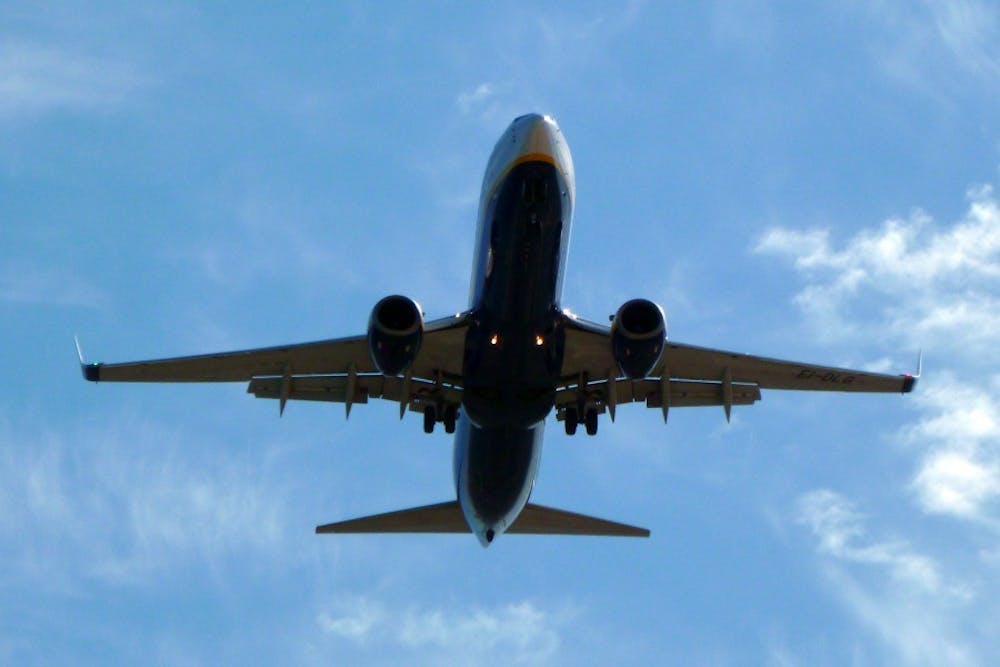Creative Commons Photo
By Alison Treen, Senior Staff Writer
With recent turmoil in China and the Middle East, and the threat of Ebola plaguing Africa, travel does not seem like such a safe idea; however, despite global conflicts, millions of American students still study abroad every year.
In fact, according to Miami University, 38 percent of Oxford students study abroad in nearly 70 countries, making Miami third among public universities across the nation.
But what occurs when the unpredictable happens?
Professor J.E. Elliot runs a summer study abroad program in Ghana, called "Design/Build in Ghana." During their 19 days in the West African country, students work rigorously to build a structure (this past year was a guesthouse), with only manual labor.
After six years of taking students to build in Ghana, Elliott knows how things work; yet, service work in a foreign country carries dangers.
"From the day we get there, I'm sort of in a knot, of what could happen at any moment," Elliot said.
Miami University undergoes many precautions before sending faculty and students abroad, including distributing safety information to participants before and during the program and directing participants to other sources of information regarding health and safety, such as the Center for Disease Control (CDC) website.
University Services also recommends medical precautions to students before traveling abroad, like getting vaccinations.
"If there are shots recommended by anyone, we get them," Elliot said.
The Miami University Global Assistance Program (MU-GAP) is another resource regarding safety abroad. MU-GAP supports study abroad programs through the collaboration of campus administrators and outside resources, such as International SOS and HTH International Health Insurance.
"Students are the core of what we do," explained GAP coordinator Cheryl Young. "We want to make sure our students, faculty and staff are safe."
Young cited the unrest in Hong Kong as an example. Miami students are currently studying abroad in this area through different programs, but the university receives updates from the programs daily on the state of the students.
"We have to make sure our students are fully supported as if they're on campus," Young said.
Although faculty members who run study abroad programs undergo training such as risk management and assessment, both with Miami University and outside programs, the recent outbreak of Ebola has sparked global concern.
Last year, Elliot only had one parent who expressed concern about the disease. But at that time, Ebola had not become as widespread as it is now.
"There's enough I have to worry about on the trip," Elliot said. "From vehicular safety, to build-site safety, to food safety."
To keep up on Ebola, he reads the CDC website, the State Department website and publications like The Guardian and Aljazeera because of their Africa sections.
Global Programs Coordinator Erin Brandyberry also keeps a close watch on Ebola's spread.
"[The disease] requires our full attention and consideration," Brandberry said. "We use our same resources to make assessment and make decisions about the safety and security of a location and would not send students to unsafe locations."
Currently no Miami programs are planned to run in countries affected by Ebola.
Although Ghana is not yet affected by the outbreak, Elliot said the presence of Ebola is still "a scary
possibility" and despite his status as a village chief (his title is Nana Bukuraw II) Elliot would not hesitate to cancel the trip due to safety concerns.
"If the environment is okay, we'll go," Elliot said. "If there's any question or situation that I wouldn't want my kids going, I'm not bringing students."
Dr. Mel Cohen, who directs "Health Care and Policy in The Gambia," agreed.
Cohen will not know until December if the trip will run this summer due to the spread of Ebola. Although the healthcare system in The Gambia is better than other West African countries, it is "not up to U.S. standards," Cohen said.
During their month in The Gambia, students, generally from the nursing program, work in clinics fixing wounds, weighing babies and giving shots, among other tasks. After 10 years, Cohen said, "we know the system there pretty well."
Cohen explained the program only includes minimal risks to students.
"We're not out in rural areas; we're in the city. We keep pretty close tabs on people as well."
If something were to happen, the faculty would notify Study Abroad at Miami immediately and decisions would then follow.
Although Cohen takes all the safety precautions he can, he still experiences a level of stress similar to that of Elliot.
"You are responsible for someone else's children," he said. "I don't want anything to happen."
Going abroad poses threats, especially in underdeveloped countries, but for Elliot, the trip is worth it. He describes the program as an immersive experience that students wouldnot otherwise experience.
Cohen feels similarly.
"It changes your life," he said. "It helps the lives of other people. You never see the world again the same way."

